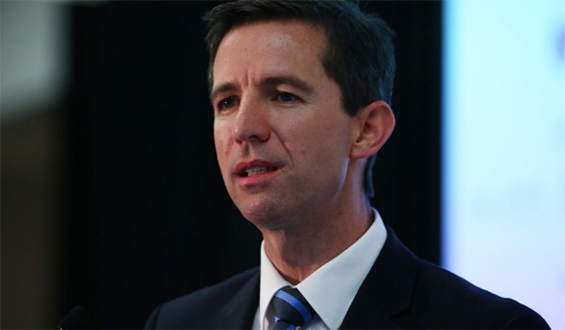
The peak body that represents the higher education sector in Australia says that the issue surrounding future funding for universities needs to be addressed before the federal election this year, adding that no other industry would put up with the uncertainty and absence of policy that universities have had to endure.
The chair of Universities Australia is expected to make use of the organization’s annual conference to make a push for a “detailed, sophisticated debate” concerning higher education, which created $140 billion for the economic growth of the country in 2014.
“This is an important part of the Australian economy and the uncertainty is untenable,” Professor Barney Glover told AM. “We need to get clarity and I don’t think it’s enough to say that in the lead-up to the next election we can continue to consult about it.”
Federal Education Minister Simon Birmingham has been involved with the sector as a consultant ever since the Government put aside a 2014 budget policy that would have cut funding while also deregulated student fees, reports Naomi Woodley for ABC News Australia. While the government decided against 20% cuts to the average federal funding for a bachelor’s degree, estimates to the budget continue to assume the cuts will be added in future years.
The announcement concerning higher education policy came from Labor last September, which included a new funding guarantee for students. Glover said that while the announcement was welcome, the sector still needed additional details concerning how universities would be funded by Labor. He added that the last few years have made planning impossible for universities, which in the end is hurting students.
“Almost two years of policy insecurity and uncertainty is taking its toll on the ability of universities to plan and allocate resources in their student’s best interests. It is difficult to imagine any other industry tolerating such policy instability,” he will tell the National Press Club in Canberra.
Labor said it will increase higher education funding by $2.5 billion over the next four years, more than making up for the proposed cuts. In addition, it said the increase to federal funding will reduce the costs for students in comparison to the estimated costs that exist with the plan currently in place.
Labor believes its plan would cause the price of a five-year medical degree to drop from $125,155 to $52,615, while a four-year law degree would cost $42,092 instead of $86,024, writes Lenore Taylor for The Guardian.
Universities Australia is seeking more detailed information pertaining to how Labor plans to fund research and development, calling the current science and innovation agenda “a great step forward,” but only a start.
A review is expected to come out next month concerning the effectiveness of the $2.9 billion that was spent on tax concessions for businesses that engage in research and development, which accounts for 90% of of the total support of the Federal Government toward innovation in the business sector.
Glover noted that he would like to see the Government consider the reallocation of a portion of those funds to a competitive process that would allow companies to bid for direct financial grants instead of tax breaks, which he said would aid in their collaboration with universities and researchers.




